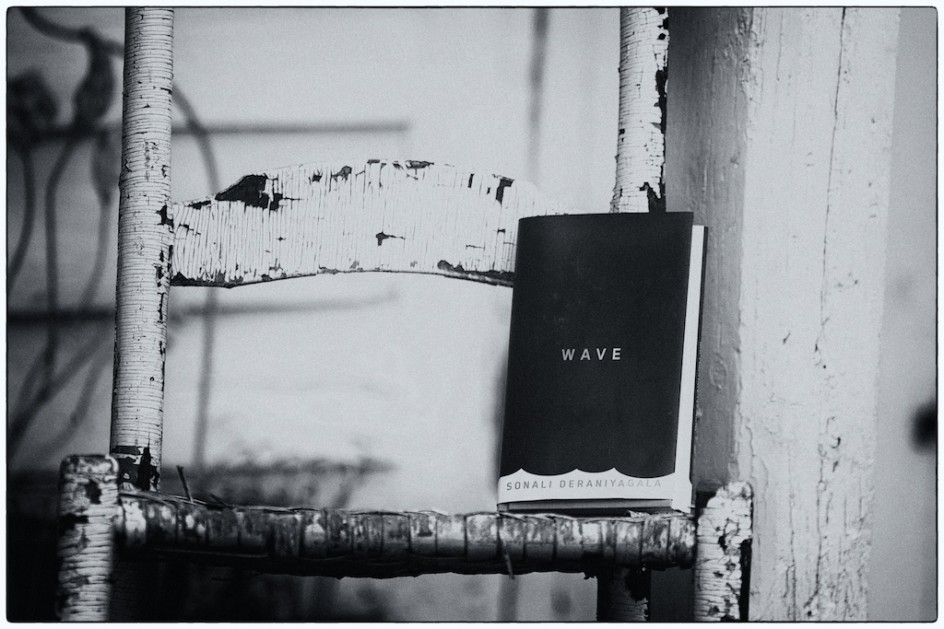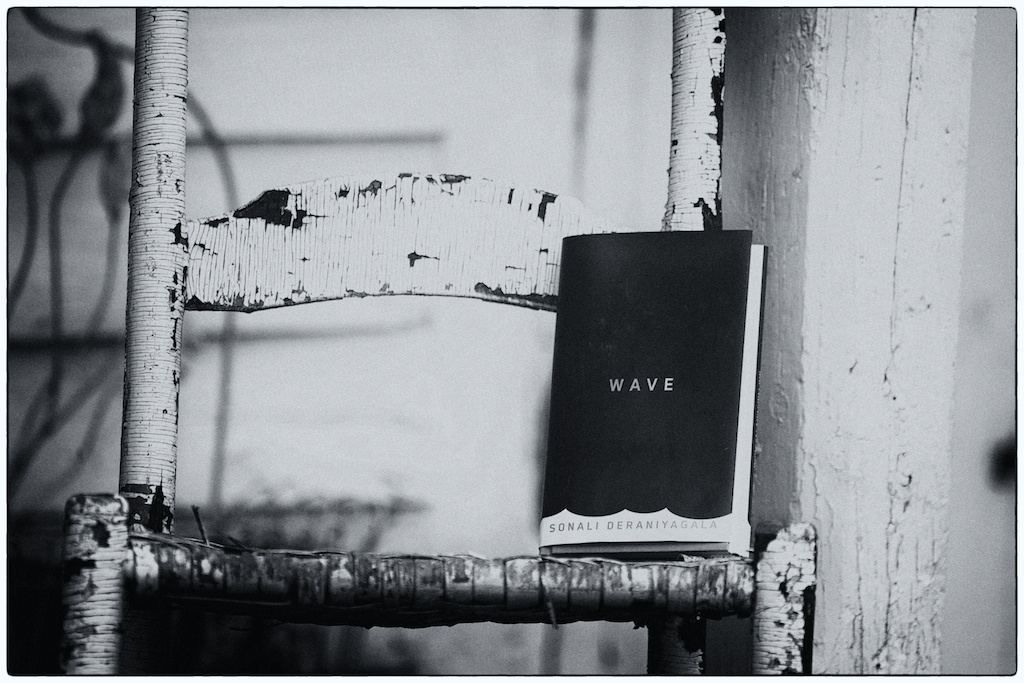
If you wish to purchase this book, please consider buying it from Battenkill Books, where I work each week as Recommender-In-Chief. This project is in support of independent bookstores, very worthy of our consideration. You can call the store at 518-677-2515 or e-mail Connie Brooks at [email protected] or visit the store’s website. They take Paypal and ship anywhere in the world. A reminder that Maria and I will both sign any copies of “The Second Chance Dog: A Love Story,” coming out this November if it is ordered through Battenkill.
__
Most of us fear getting hurt or falling ill or losing someone we love. We rarely imagine a tragedy on the scale that befell Sonali Deraniyagala in December of 1984 when she and her family were vacationing in her native Sri Lanka with her husband, who was her college sweetheart at Cambridge, her parents, her two sons, aged five and seven, and her best friend.
The book – a memoir – opens when her friend Orlantha, who was staying with them at Yala National Park, turned to her in her hotel and said of Deraniyagala’s marriage and life “what you guys have is a dream.” The next thing Orlantha said was “Oh my God, the sea’s coming in.”
She ran from the room with her husband and two boys. She rushed down the stairs and out of the hotel. She did not stop to warn her parents who were in the next room, she thought they must know and there was no time to save her boys.
She and her family jumped into a jeep that began to speed away. She looked up to see a look of horror on her husband Steven’s face and she turned to see a great wall of water bearing down on them, and that was the last she saw of her family before everything went back and cold and she was swept into the whirlwind. That is how this incredible story begins.
The waves she saw killed hundreds of thousands of people and swept away Deraniyagala’s parents, her husband, her two children and Orlantha. Only Deraniyagala, an economist living in London, survived. She was found spinning around in circles and deranged in a swirl of mud after the water receded. “Wave” is the story of that horrible morning and of the years that followed it. That she had a wonderful marriage and loved her parents and children dearly – and lost them in an instant – is at the heart of this story.
The metaphor of the tsunami is mesmerizing and terrifying. The idea of a giant wave coming out of the sea and swallowing up everything one lives in life in the midst of a wonderful vacation – it is hard to get anyone’s head around that.
This memoir is being hailed as a powerful masterpiece of grief and it is that for sure. I suppose, to be honest, the first question a reader might ask – the first question I asked – is why should I read an account of grief so much larger and more devastating than any of us are likely to encounter? I can’t say I have an answer to that. You’ll have to make up your own mind.
“Wave” (Knopf) is written in two parts. The first is simply about the devastation of grief and loss, recounted in a beautiful and shattering way. The second is about recalling happiness and remembrance, bringing her family back to life piece by piece in her imagination and memory. Her account of sorrow is harrowing. She rages in fury, turns suicidal, goes mad and harasses a couple living in one of her parent’s houses in England. She becomes an alcoholic, turns almost feral, is protected and supported by determined friends and relatives. They saved her life, or what was left of it at the time. The second part of the book is lighter, less relentless, than the first.
The book spans a number of years in Deraniyagala’s life. At some point, she struggles to live, begins to heal. She begins to permit herself to remember the lives of her parents, her boys, her husband. She recalls their hobbies, clothes, games, funny ways of saying things, the details of their lives together:
“On quieter days we cooked duck eggs, ate them with crumpets,” she writes. “The boys were impressed with duck eggs. They cupped them in their arms to feel the weight, then tapped the hard shell. Vik would pretend to spin bowl with , enjoying my agitation as he twisted his fingers around it and lurched forward, raising his arm. He eventually put the egg down, saying “Calm down, calm down” – in a strange accent (meant to be Liverpudlian). This was something he learned from his father, Regular life, so I thought.”
There is grief and there is grief. Deraniyagala had no chance to imagine what happened to her, no chance to prepare or even think of saying goodbye. She painstakingly goes back over the details of her shattered life to reach some sort of closure and make some sense of the unthinkable. We will all face grief in our lives, we will all lose a love one, and this book could be valuable in understanding grief, preparing for it and grasping its depth and power.
As praised and publicized as this quite remarkable book has been, it is a very personal choice about whether or not you want to read it. I have to say I was afraid of it, was touched by the wonderful writing and Deraniyagala’s great courage and heart. And the thing is, she did survive, she did get through it. She is currently a visiting research scholar at Columbia University in New York. Ultimately “Wave” is not only a story of grief, but of a grief survivor. It is not a book for everybody, but the people who want to read it or need to read it will know if it is for them. You will not forget it quickly.
This isn’t a simple book, told in a familiar narrative way. Every page is intense. It is beautiful, I think, but not ever easy to read. The word that comes to mind for me after reading “Wave” is redemption. She redeems her family and friend, pulling them out of the great abyss and willing them back to life, if only to say goodbye.

